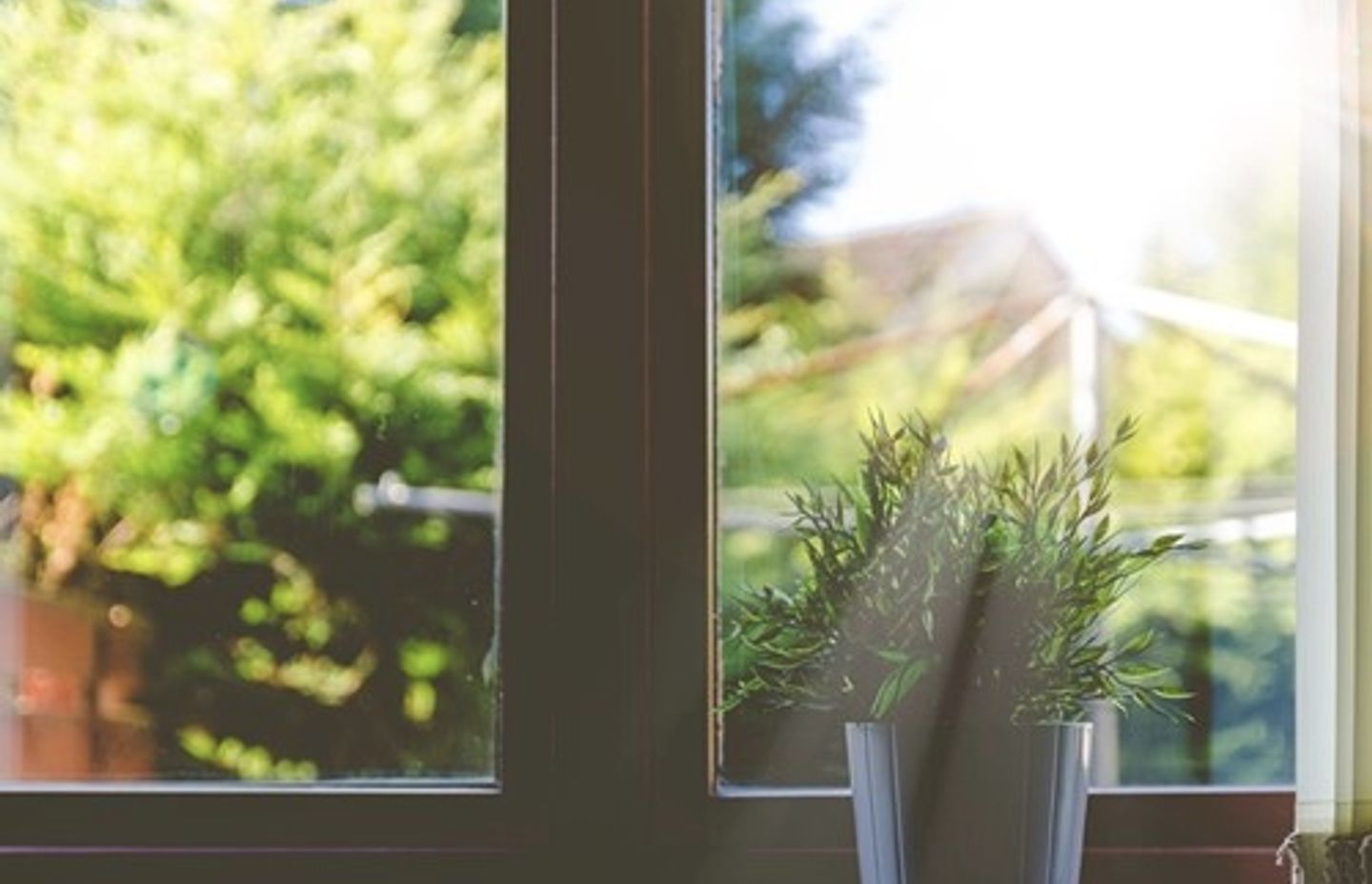4 Essential Window Maintenance

Windows in poor condition can be a major headache for any homeowner, whether you live in a single-family house or a city apartment. Keeping them in good condition is an essential part of basic home maintenance and will help protect your investment while making your house a more pleasant place to live.
Follow these four essential window maintenance and cleaning tips to keep your house windows in top condition:
1. Scrub away accumulated salt
The best thing you can do to maintain your house windows and avoid a costly replacement is to stay on top of cleaning and upkeep with a regular schedule. Barring a catastrophic event, window deterioration occurs slowly over time, and by routinely cleaning your windows, you can remove harmful particulates and spot growing problems in their early stages.
In particular, anyone living near the coast should be aware of the amount of salt that accumulates on and around your house windows. The ocean air can deposit salt particles on your home's exterior, and salt buildup can become even worse following a storm. After the torrential rain evaporates, it can leave behind a great deal of salt on your windows. While it can make your glass cloudy, salt can also accelerate corrosion on frame components and other surfaces including those that are powder coated. If left unchecked, your windows may deteriorate and may even require a full replacement.
Every 3-6 months your windows require regular cleaning to remove harmful salt residue. Scrub the exterior with fresh water. You don't necessarily need fancy and expensive cleaning products to keep your windows spotless. Mild soap and water should do the trick. For the metal components such as hinges or fasteners on your windows, remove loose dirt with a damp sponge or soft brush and warm water then clean off any remaining residue with fresh water.
Some points to remember for powder-coated aluminium frames is to not use a solvent cleaner as it will harm the surface finish. Definitely avoid polishes with cutting compounds and if in doubt contact your Altus Window Systems manufacturer.

2. Seal draughty windows
Draughty windows are an absolute nightmare for homeowners, especially in the winter months when cold air seeps into your home. Older homes can be especially prone to cold draughts, but that doesn't mean you have to put up with chilly temps.
Draughts don't just make your home uncomfortable: they can have a detrimental effect on your house's energy efficiency. According to the Ministry of Social Development, as much as 20% of your home's heating can be lost to draughts. And the more you crank up the heat to combat cold draughts, the more money you'll spend heating your home.
There are health concerns to consider with cold draughts, as well. The World Health Organisation guidelines recommend a minimum temperature of 18°C in homes to prevent the risk of respiratory illness. Although draughts are arguably more troublesome during winter, they are a year-round concern. In warmer parts of New Zealand, making your air conditioner work extra hard throughout the summertime to cope with warm draughts will increase your electric bill.
If you have a draught in your home, there's a good chance your windows aren't sealed properly. As windows age, seals can get damaged or deteriorate and become less effective at preventing uncomfortable draughts. With wooden frames, you may be able to fix the problem by reapplying sealant around the exterior and interior of your glass. First, you'll want to scrape off any old sealant with a putty knife and give yourself a clean surface to work with.
With aluminium window frames, check that the drainage holes along the sill are clear of salt, dirt and another residue. Check the weatherstripping is sealing evenly, if not have your window maintenance company replace any damaged seals and rubber around the glass.

3. Remove wood rot
Wood and water are a bad combination, and if you haven't installed aluminium house windows, your windows could be at risk of warping - or worse, rot.
Frames made from wood and with poor paint condition can absorb moisture, and that buildup is a major concern for any homeowner, especially if it is left unattended for too long. Not only could they expand to reduce functionality, but the moisture can also lead to mould and fungi, which can deteriorate the wood and lead to rot.
When you are checking that your windows are properly sealed around the exterior, you should be especially vigilant about the area directly below the window frame and sill because it may not receive as much direct sunlight, letting moisture accumulate without evaporating.
Rot isn't just ugly to look at; it could disrupt the structural integrity of the area around your house windows. If you spot wood rot, whether it's in the frame, sill or trim, you should address it as soon as possible. If the affected area is too large to easily remove and fix, you may need to consult an expert to completely remove the windows. Aluminium windows are a good option if you're concerned about rot becoming a recurring problem with your home. They provide long term strength and durability and don't absorb harmful moisture that can result in wood rot or mould.
4. Watch out for condensation
Condensation isn't always a concern, but you should be mindful of what's causing it and if it points to a bigger problem with your house windows. Condensation forms when the warm, moist air inside your house comes in contact with the cold air outside. If your windows are double glazed and condensation is building up between panes, that could mean there is a problem with the seal in your double glazed windows. Without a proper seal, your windows will lose their insulative capabilities, reducing the energy efficiency of your home. Contact your window professional to get them replaced.
As the Window & Glass Association New Zealand points out, excessive condensation could point toward the presence of high indoor humidity. If left unchecked, those conditions could lead to mould growth and potentially even health problems for homeowners and their families. It's certainly not an issue you want to take lightly.
While it is still important to ventilate your home, you can also install double glazing, increase the insulation of your home or install a ventilation system. Altus Window Systems offers a passive ventilation feature in some windows that allows the free flow of air from the inside to theoutside of the building through a secure and controlled screen.

Secure your home investment with aluminium windows
If you love the look of wooden windows, there is an Altus Windows System that combines both aluminium & timber frames. On the exterior, this system utilises the proven performance of aluminium joinery and design, on the interior, it utilises the thermal performance and character appeal of timber. Check out Alti® windows.
All Altus Window Systems adhere to the 15-year durability requirement of the NZ Building Act 1991 B2, though your windows will likely last far longer than that of course. Altus products go beyond those baseline benchmarks when it comes to durability, reliability and performance. Each unit is rigorously tested in an internationally accredited New Zealand lab.
To learn more about essential window maintenance and how to keep your house windows in the best condition possible, contact an Altus Window Systems Fabricator today. Whatever the problem, we can help you find the right solution.
